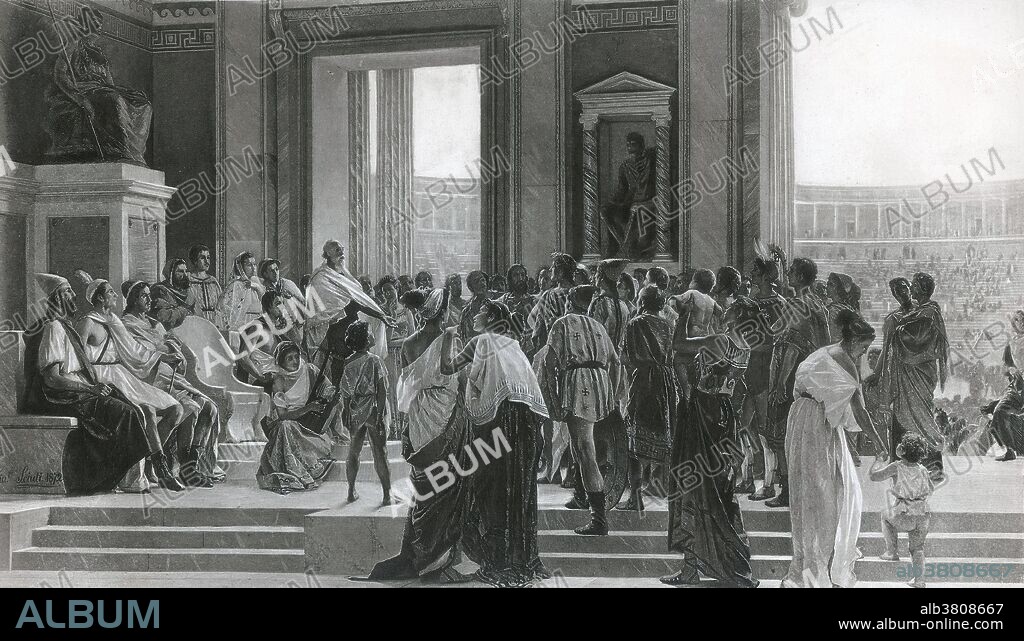alb3808667
Pindar Reciting Victory Ode, Ancient Olympic Games

|
Zu einem anderen Lightbox hinzufügen |
|
Zu einem anderen Lightbox hinzufügen |



Haben Sie bereits ein Konto? Anmelden
Sie haben kein Konto? Registrieren
Dieses Bild kaufen.
Nutzung auswählen:

Titel:
Pindar Reciting Victory Ode, Ancient Olympic Games
Untertitel:
Siehe automatische Übersetzung
The epinikion is a genre of poetry also known as a victory ode. In ancient Greece, the epinikion most often took the form of a choral lyric, commissioned for and performed at the celebration of an athletic victory in the Panhellenic Games. Pindar (522 - 443 BC) was an Ancient Greek lyric poet from Thebes. Of the canonical nine lyric poets of ancient Greece, his work is the best preserved. Lyric verse was conventionally accompanied by music and dance, and Pindar himself wrote the music and choreographed the dances for his victory odes. Sometimes he trained the performers at his home in Thebes, and sometimes he trained them at the venue where they performed. Commissions took him to all parts of the Greek world - to the Panhellenic festivals in mainland Greece (Olympia, Delphi, Corinth and Nemea), westwards to Sicily, eastwards to the seaboard of Asia Minor, north to Macedonia and Abdera and south to Cyrene on the African coast. Pindar lived to about eighty years of age. He died around 440 BC while attending a festival at Argos. His ashes were taken back home to Thebes by his daughters, Eumetis and Protomache. No artist credited, engraving from the original painting by Sciuti.
Bildnachweis:
Album / NYPL/Science Source
Freigaben (Releases):
Bildgröße:
4950 x 2840 px | 40.2 MB
Druckgröße:
41.9 x 24.0 cm | 16.5 x 9.5 in (300 dpi)
Schlüsselwörter:
BERÜHMT • BERÜHMTE PERSÖNLICHKEIT • GREECE • GRIECHENLAND • ILLUSTRATION • ILLUSTRATIONS • MANN • NOTABEL • PERSON • PERSöNLICHKEITEN • PERSÖNLICHKEITEN • PROMINENZ • SPORT
 Pinterest
Pinterest Twitter
Twitter Facebook
Facebook Link kopieren
Link kopieren Email
Email
